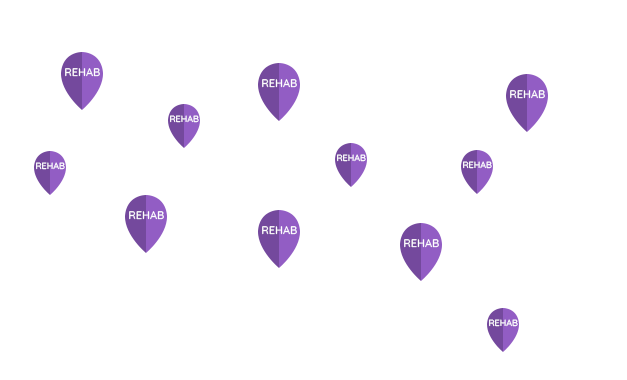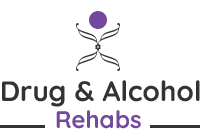We can help you find a Drug and Alcohol Rehab Center
The National Institute on Drug Abuse reports that close to 25 million Americans over the age of 12 require professional treatment for drug abuse or addiction. Unfortunately, under 12 percent of the drug addicted population will actually receive the help they both need and deserve. It is important to understand that this is not because drug addiction treatment is unavailable to them – with the recent rise in drug addiction cases throughout the country came a rise in treatment options. Thousands of drug rehabs across the country have opened their doors, each catering to the specific needs of potential patients with one common, underlying goal – help those struggling with addiction go on to lead happy, substance-free lives.
How To Find The Right Rehab
We understand that when it comes to seeking professional care, there are many hurdles to jump over and many questions to be answered. Which drug rehab is the right choice for me? What can I do if I cannot afford to pay for drug rehab? What do I do if rehab doesn’t work for me? The truth is, those who attend inpatient drug rehab as part of a complete program of recovery have very high success rates when it comes to long-term sobriety.
Our goal is to help you find the right drug rehab for you and go on to lead the productive and fulfilled life you deserve. Reach out to us today with any questions you may have, and we will gladly answer them for you while offering you all of the support and guidance you need.
24/7 Rehab Help

8207 Mulholland Drive,
Los Angeles
California 90046
3151 Airway Avenue,
Costa Mesa
California 92626
21734 Amble Drive, ,
Escondido
California 92029-4800
What Is The Rehab Process?
Finding the right drug rehab for you might seem like a daunting process, seeing as there are so many reputable options to choose from. When it comes to choosing the right program to fit your specific needs there are several factors you will want to consider. First of all, you will want to determine whether or not you would benefit from certain services that might be offered at one drug rehab and not another. For example, a dual diagnosis rehab will offer mental health services in addition to services typically offered by drug and alcohol rehabs. Licensed psychiatrists will be on staff, and they will help you navigate any co-occurring mental health disorders like depression, anxiety, post-traumatic stress disorder or bipolar disorder. Many individuals choose to go to gender-specific or age-specific rehab facilities.
Why Is Rehab Important?
When searching for addiction treatment, you will want to consider factors like affordability, location and the length of the program itself. Does the rehab you are looking into accept your health insurance policy? Do you want to stay close to home or go somewhere out of state? If your addiction is severe, you may require a long-term (three to six month) program, whereas a more mild addiction might require a shorter length of stay (one to three months). We are available to help you determine which services will benefit you the most, and which drug rehab center will allow you to heal thoroughly and go on to lead the life you truly deserve.
Drug rehab is a crucial step on the long-term road to recovery. However, recovery is a multi-part process. You will need to first enter into a medically monitored detox facility, where you will safely withdraw from your drug of choice and be physically stabilized. Once you are deemed fit to enter a drug rehab program, you will transfer there directly from your drug detox.
Generally speaking, inpatient drug rehab will last for somewhere between one and six months, depending on the severity of your addiction and whether or not you struggle with any co-occurring disorders. Drug rehab consists of intensive one-on-one and group therapy sessions, and introduction to the 12 step method of addiction recovery, the teaching of crucial life and relapse prevention skills, and numerous other recovery-related services.
We believe that your first drug rehab should also be your last, and that in order to maintain lifelong recovery it is crucial that you enter a program that will cater to all of your unique needs. For more information on finding the right drug rehab for you, reach out to us today. We are happy to walk you through the process, and get you started on your own personal journey of addiction recovery.



